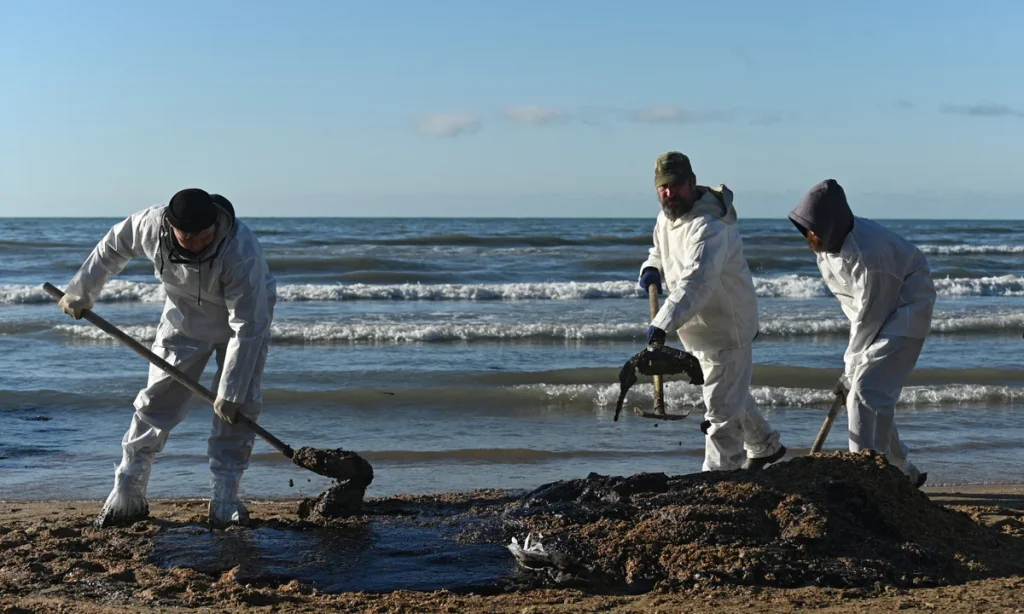The Moscow-installed head of Crimea, Sergei Aksyonov, has raised concerns about a high risk of significant environmental damage to the peninsula following an oil spill in the Black Sea.
The spill occurred on December 15 when two Russian oil tankers leaked approximately 2,400 tonnes of heavy fuel oil into the Kerch Strait, which separates Crimea from southern Russia. Thus far, the contamination has predominantly impacted Russia’s Krasnodar region, where polluted beaches and the deaths of marine wildlife, including birds and sea mammals, have drawn condemnation from President Vladimir Putin, who termed it an “ecological disaster.”
Aksyonov stated Wednesday that the environmental threat is shifting toward Crimea, noting forecasts indicating the risk could escalate to match the severity seen in Krasnodar. Already, oil slicks have been observed near Sevastopol, about 250 kilometres from the spill site.

The cleanup operation in Crimea has so far removed over 300 tonnes of oil products and contaminated sand, according to Russia’s emergency situations ministry. However, the spill has claimed the lives of marine animals, including several dolphins, according to local officials.
Russia’s Delfa Dolphin Rescue Centre reported that 32 cetaceans, primarily Azov harbour porpoises, have died due to the spill. Cleanup volunteers have also found dead dolphins along Sevastopol’s shores.
Authorities in Crimea have called for the establishment of a new treatment centre for oil-covered birds, as the current facility at a safari park is insufficient for the scale of the disaster.
Russian officials noted that the heavy and dense nature of the leaked fuel oil complicates cleanup efforts, as it tends to sink rather than float, making it harder to recover.

